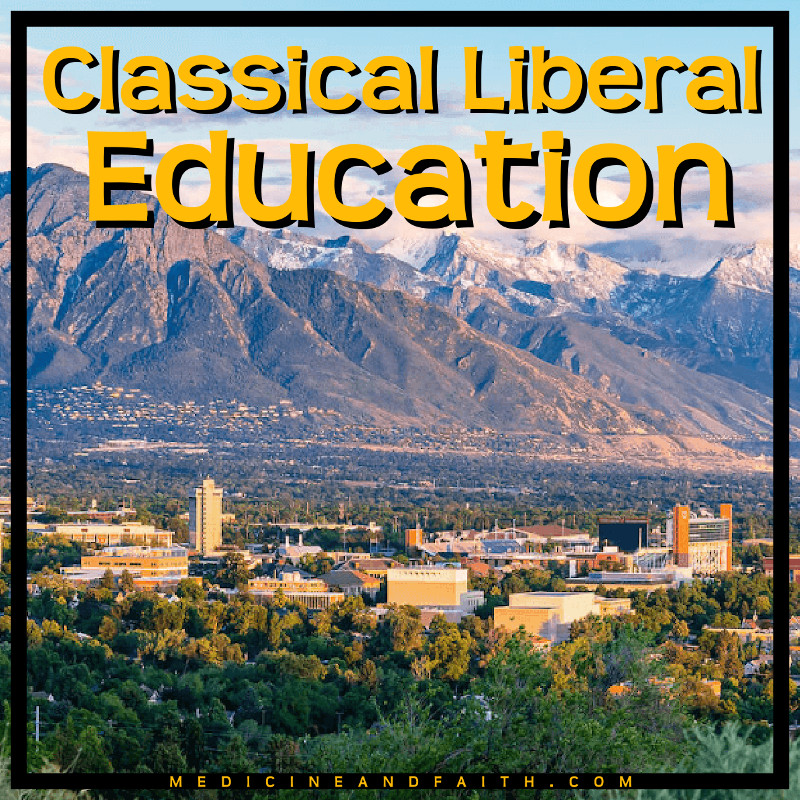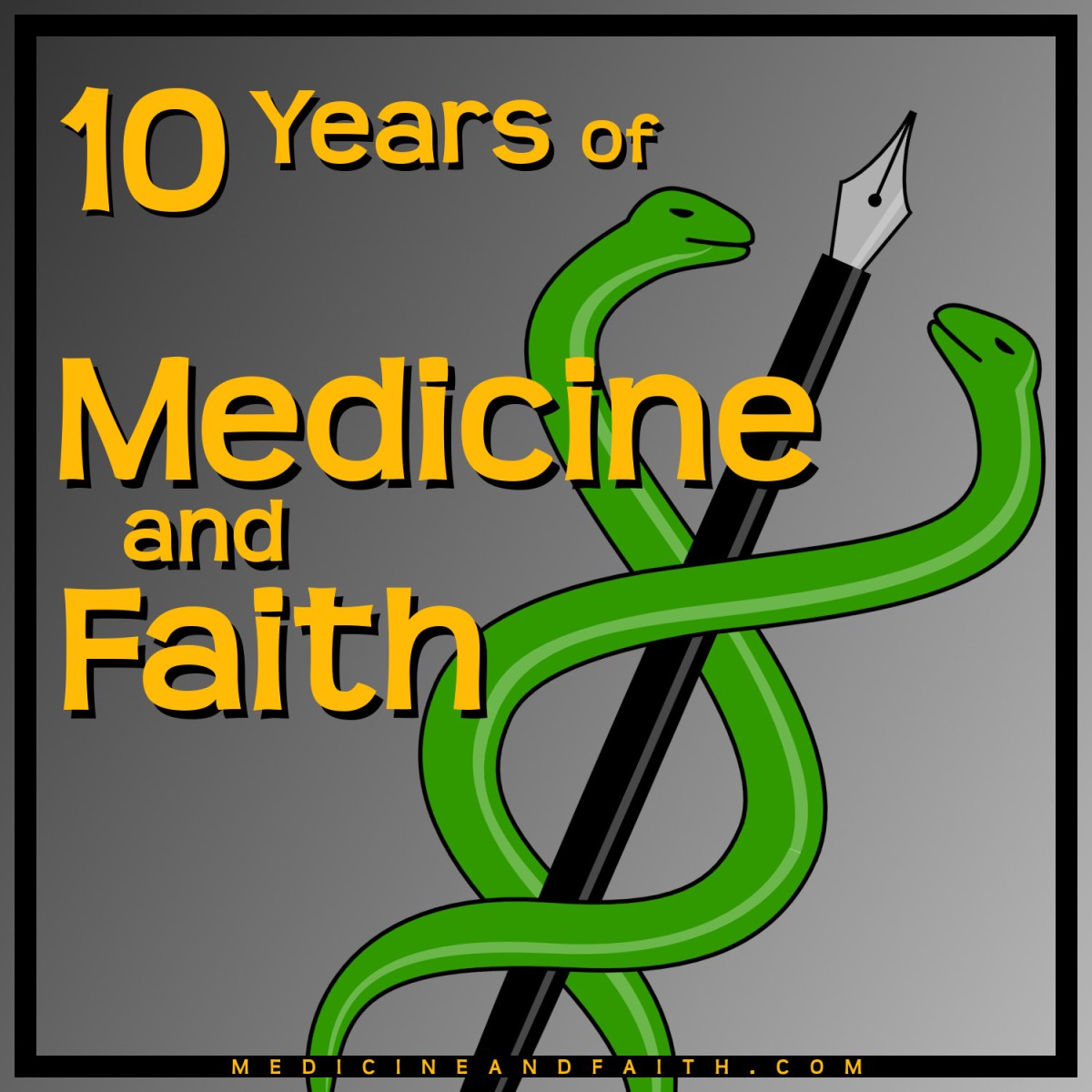I once had a patient in my clinic with intractable migraine headaches, who had tried all of the herbal remedies for migraine that I had ever heard of (including one that is not recommended due to liver toxicity) plus several more that I wasn’t familiar with. She was a practitioner of “naturopathic medicine” and was very distrustful and reluctant to try any prescription medications. After I spent half an hour or so describing all of the treatments I could offer her, she flatly refused all of them and left my clinic no better than she had been when she walked in.
You might expect the topic of alternative medicine to be rather bland. After all, is it really in dispute that good nutrition is good for you, and that some natural products have medicinal properties? But this topic seems to be perpetually roiled in controversy, and I risk offending half of my readers (and half of my family) with this post. From the beginning of this discussion it should be obvious that I have skin in this game, as I am a practicing medical doctor, but I will attempt to take a fair approach as I explain why some doctors are reluctant to endorse or accept alternative therapies. There is much to praise and criticize in both mainstream and alternative medicine. I will also discuss the scriptural arguments which have been put forward by Latter-day Saints who are proponents of alternative medicine. My usual disclaimer applies here, which is that I am writing my own opinions which are not necessarily the official views of The Church of Jesus Christ of Latter-day Saints or of my employer.
First, let me define the terms I will use. For the purposes of this post, the term “mainstream medicine,” refers to evidence-based, western, or “allopathic” medicine. This is what is practiced in hospitals, emergency rooms, and clinics by people holding MD or DO degrees, and includes prescription drugs, surgeries, and many other treatment modalities. “Alternative medicine,” also known as complementary or integrative medicine, refers to a diverse field of disciplines which are generally considered outside the scope of mainstream medicine, including herbal medicine, naturopathy, chiropracty, acupuncture, homeopathy, reiki, faith healing, and various other forms of traditional medicine and folk remedies.
Medical Science
In the 1890’s a new disease was described by Werdnig and Hoffman, which became known as spinal muscular atrophy (SMA). The disease was so named because its most striking feature is profound weakness and atrophy (shrinkage) of muscles, but the primary pathologic changes are seen in the motor neurons of the spinal cord. This disease runs in families using a recessive inheritance pattern, and in its most severe form it causes death during infancy.
Over the next century much progress was made in providing supportive care for people with SMA, including limb braces, wheelchairs, and ventilators, but the disease itself remained untreatable. In the 1990’s a team of researchers discovered and described the gene mutation which causes SMA, a pair of genes called Survival Motor Neuron 1 and 2 (SMN1, SMN2). Normal people rely on the SMN1 gene to produce the SMN protein, but patients with SMA have a genetic mutation causing deletion of the SMN1 gene. The SMN2 gene is a wounded copy of SMN1, which is much less efficient at producing the SMN protein. It makes enough for the patient to survive, but not enough for their motor neurons to be normal.
In December 2016, about 20 years after the SMN gene was discovered, the FDA approved a new drug called nusinersen, the first effective drug for the treatment of SMA. It works by increasing the output from the SMN2 gene, and it is amazing to see videos of SMA patients learning to walk. The boy in this video would probably be on a ventilator, if not already dead, if it weren’t for nusinersen. This video makes me cry, because I have seen many SMA patients, and until this drug was approved there was just nothing to treat them with. This drug did not come from a plant or from any natural source; it was designed and synthesized by a scientist in a laboratory.
New therapies for SMA are under active investigation, including a gene therapy approach which replaces the missing SMN1 gene. When these therapies were presented at the American Academy of Neurology annual meeting in 2017 there was a spontaneous eruption of applause from the audience.
This story is just one example among thousands of stories illustrating that mainstream medicine is the result, and the ongoing product, of attempts to ground the practice of medicine in scientific methodology. From germ theory, to antibiotics, to gene therapy, biological science has contributed inestimably to the improvement of medicine over the past 200 years.
Mainstream medicine demands a thorough investigation of any therapies under development. How does the treatment work, and how effective is it? What are its side effects or toxicities? How does it compare to other available therapies? Is it cost effective? If the answers to these questions are unacceptable, then the new therapy will be rejected by the pharmaceutical companies, regulatory agencies, or practicing doctors and their patients. This means that there are diseases and symptoms for which mainstream medicine has little to offer, and these limitations are very frustrating for doctors and their patients. Medicine, like science in general, is a work in progress.
Medical doctors are trained to evaluate scientific evidence and apply it to clinical practice, in the same way that mechanical engineers use their knowledge of physics to design buildings, bridges, and other structures. The difference is that when you drive across a bridge you don’t have to sit down with the engineer first to learn about its design. During a clinic visit I try to help patients understand their diagnosis, the rationale for the therapy I recommend, and the balance I am trying to strike between risks and benefits of therapy. Hopefully with this knowledge they will be confident to drive across the bridge I have built for them.
The Nature of the Evidence
Doctors who are accustomed to relying on scientific data to guide their decisions often feel overwhelmed with the world of alternative medicine where there is comparatively less of the kind of evidence we normally use. Where such evidence exists it is usually a small clinical trial, often unblinded and without a placebo control, and the effect size of the treatment effect is generally small. There is usually even less scientific data about how alternative therapies are supposed to work. Proposed mechanisms are often vague, like “balancing blood flow,” and can even be metaphysical, like “channeling positive energy.” And don’t even get me started about homeopathy, which makes no rational sense from a mechanistic perspective.
These are gross generalizations, and I acknowledge that I am being a little unfair to some of the better alternative therapies, but I think it is fair to say that alternative medicine as a whole is less grounded in biomedical science than mainstream medicine is. That is not to say that there is no evidence to support alternative medicine, but the type and quality of evidence is different. Patients and practitioners of alternative medicine are less skeptical of claims than medical doctors tend to be, and are far more apt to take things at face value when they are told that a treatment is “good for” a certain thing or that it works in a certain way. Tradition and anecdote are more important in this context than outcomes data from clinical trials.
But the fact that Uncle Bob’s neighbor got better after he starting taking some herbal extract does not prove that the same treatment will work for you or anyone else.
Alternative Medicine in the Doctor’s Clinic

Most doctors I know have mixed feelings about alternative medicine. Despite our valid concerns, we recognize that it is foolish to dismiss the entire field for a number of reasons. Most important is the fact that many of our patients and family members benefit in some way from alternative therapies. It is also important to remember that many of our effective medicines are derived from plants, bacteria, fungi, or animals. It would be vain to assume that mainstream medicine has already discovered, described, and tested all of the useful natural products. Scientific objectivity mandates an openness to considering new data, new ideas, and new hypotheses. I don’t know a single doctor who would be reluctant to incorporate a natural product into their practice if there were good evidence to support its clinical use.
But patients don’t really care about all of this ivory tower posturing, and they don’t usually take sides in our turf wars. They care more about cost and access to care, and mainstream medicine generally loses in that competition with alternative medicine. (Nusinersen, the new drug for SMA, costs $750,000 for the first year of treatment.) Most reasonable people try to fix things themselves with home remedies and over-the-counter treatments before reaching out for more help, and so evidence-based medical therapy is just one prong of the multi-pronged approach which people take.
I am not an expert in complimentary and alternative medicine, and I have no interest in becoming one, but I rarely discourage my patients who want to pursue these options. As long as something is safe then I have no objection to my patients trying it. Even if all they obtain is a placebo effect, who am I to argue with success, when success means improved quality of life? My wife has lately been trying to get my balding head to grow hair again by rubbing some kind of oil onto my scalp. Do I complain about this? No, because I get a free daily scalp massage and some quality time with my wife out of it, and I don’t really care whether or not my hair grows back.
Earlier this week one of my patients was wearing a metal bracelet on her left wrist, which she had bought while she was on vacation. She was told that it would help with her balance, and when she started wearing it she did notice an improvement in her walking stability. We talked about this therapy for several minutes, and I was fully supportive of her using it. Not only did it seem to help her balance, but it was also a good looking bracelet which matched her outfit, so there was no downside to her wearing it. I also appreciate her taking the initiative in doing something to help herself. But I am very unlikely to recommend this therapy to my other patients because there is no plausible mechanism for its effect, and there will probably never be a clinical trial to prove or disprove whether it actually works.
There are many conspiracy theories about Big Pharma ignoring or even suppressing alternative therapies in favor of highly toxic synthetic chemical poisons available only by prescription. When I hear stuff like this I just scratch my head and wonder what all of the paranoia is about. If you can convince me that a therapy has clinical usefulness, reliable pharmacologic properties, and a good safety profile then I will incorporate it into my practice. Prescription drugs and other mainstream medical treatments have to pass the same hurdles. (For a good debunking of the principal Big Pharma conspiracy arguments, read this page: https://skeptoid.com/episodes/4589)
Alternative Medicine in Latter-Day Saint Scripture and Culture
The topic of alternative medicine is at least as contentious among Latter-day Saints as it is in the greater culture, and you will find church members all over the spectrum of scientific literacy and all over the spectrum between mainstream medicine and alternative medicine. Latter-day Saints are believing people, which I think is a good thing overall, but sometimes we apply our believing natures to areas of life where a bit of skepticism might be more useful.
There are many proponents and practitioners of alternative medicine among Latter-day Saints, and some of these have attempted to find a support for their health practices in the scriptures. There is a single verse in the Book of Mormon which describes the herbal medicines used by the ancient Nephites in about the year 72 BC:
“And there were some who died with fevers, which at some seasons of the year were very frequent in the land—but not so much so with fevers, because of the excellent qualities of the many plants and roots which God had prepared to remove the cause of diseases, to which men were subject by the nature of the climate” (Alma 46:40).
Another verse from the Doctrine and Covenants recorded in Ohio in 1831 seems to endorse herbal medicine:
“And whosoever among you are sick, and have not faith to be healed, but believe, shall be nourished with all tenderness, with herbs and mild foods” (Doctrine and Covenants 42:43).

Both of these passages have been used by Latter-day Saint herbalists to argue and suggest that God has a preference for naturopathic medicine over mainstream medicine. But mainstream medicine as we know it today did not exist at the time when either of these passages were written, when bloodletting was still a common practice among medical doctors, and when virtually all medicines were natural products. (We didn’t even have synthetic aspirin in 1831.) By the same logic, Doctrine and Covenants 136:5 is not an endorsement of transportation by covered wagons over automobiles, because automobiles did not exist in 1847. Certainly it is true that God’s creation includes wonderful and useful natural products with medicinal properties, but there is nothing in these verses to suggest that these products could not or should not be purified, synthesized, altered, mass-produced, or studied in clinical trials. Show me these “many plants and roots” and let’s see if we can find out what is in them and how effective they are!
Is there an official Church position on complementary and alternative medicine? Not really, with the notable exception of faith healing, which we preach and practice according to scriptural patterns. Members of the church have been counseled to use caution, common sense, and prudence when making decisions about healthcare. The Church Handbook states, “Members should not use medical or health practices that are ethically or legally questionable. Local leaders should advise members who have health problems to consult with competent professional practitioners who are licensed in the countries where they practice” (Handbook 2, 21.3.6). I think there is room within this statement for a lot of mainstream and alternative medicine. An official Church statement initially given to the news media, and later quoted in General Conference by M. Russell Ballard, states, “We urge Church members to be cautious about participating in any group that promises-in exchange for money-miraculous healings or that claims to have special methods for accessing healing power outside of properly ordained priesthood holders.”
Some Thoughts About Balance
Hopefully my readers on both sides of this debate will find something they can agree with in this post. Obviously I am firmly in the mainstream medicine camp, but I think I can understand and sympathize with where the other side is coming from. Most importantly, I can understand why my patients are interested in trying anything which might help them. My goal here is to help us understand one another, and if I have accomplished that then I can claim success.
In contrast to the negative experience I described at the beginning of this post, I have had many positive experiences with alternative medicine. One story stands out from the others, which is the experience of a family member. She had acoustic shock, and was bothered by incessant ringing in her ears and persistent headaches, which led to reclusive behavior and severe depression. After suffering with these symptoms for over 6 years, and after failing to respond to mainstream medical treatments, she started taking nutritional supplements containing lunasin, which is a soy protein that regulates epigenetics, and which is under active investigation for its various beneficial properties. Almost immediately after starting the supplements she had a marked improvement in all of her symptoms. I remember visiting with her a few months after she started taking it, and being astonished at how much better she was. And she is still better to this day, now years later. Clearly a miracle of healing has happened to her.
And that is really the point of all of our efforts to maintain health, manage disease, or palliate symptoms through any means. Whether we turn to a medical doctor, a chiropractor, or directly to the Lord himself, our hope is that we will get better and feel well. We seek for miracles, whether or not we can understand their biological mechanism, and we should thank the Lord for healing us, whether we think it was a medical treatment or simply the Lord’s will and power that accomplished the miracle.





I got here through your “Medical Marijuana” post. I was intrigued to get a mainstream doctor’s thoughts on alternative medicine. I appreciate the way you approach it, but I wanted to offer a suggestion that “mainstream” and “alternative” can very much be complementary, instead of on opposing sides. A Ph.D, mainstream doctor working in a popular mainstream clinic that I was a patient at ended up recommending an herb for me because I was allergic to the medication they tried. He himself takes the herb. It helps immensely.
I owe my life and health to various mainstream medical procedures (primarily surgical), but I find that for some conditions, “alternative” practices are gentler and have fewer side effects. So I don’t think it’s an “either/or”, but a “both/and/either/or” depending on the person and the condition. I think it’s wonderful to have all kinds of options. I also think that herbs could be studied better, but that they aren’t because there is no money to be had in patents and sales of something that people can grow or harvest, and that pharmaceutical companies have a lot more money to fund studies.Both herbs and mainstream treatments need to be used “with judgment and skill”, and you’ll find a lack and abundance thereof all across the spectrum of each category.
LikeLike
Thanks for your thoughts. You are right that it is not a question of either/or. I sometimes recommend riboflavin and magnesium for migraine prevention, for instance, when other things don’t seem to be working or when prescription medicines are contraindicated for some reason (like pregnancy). But in that case I would consider riboflavin and magnesium to be under the umbrella of mainstream medicine, because there is a reasonable amount of research and experience showing that they are helpful. They have fewer side effects than most prescription migraine medicines, but they are also generally less effective. I have a few patients that do really well on them, but others who get no relief.
In my clinic I don’t take an alternative medicine approach, but in my personal life I have a much greater tolerance for practices which are not necessarily backed by evidence. I love running barefoot and in minimalist shoes, for instance, even though the science on that question is quite conflicted.
Thanks for reading!
LikeLike
A motivated, cooperative patient may be a critical component in whether people can heal from what ails them. Compliance with daily discipline contributes to the effectiveness of treatments, regardless of whether that’s Big Pharma or Alternative. The dialectical skepticism of a professional of one over can contribute to a patient’s outcomes. The power of suggestion and affirmation has more power than likes to be attributed at times. As one of the other posters stated it can be a both/and/either/or, depending on the need of the moment.
LikeLike